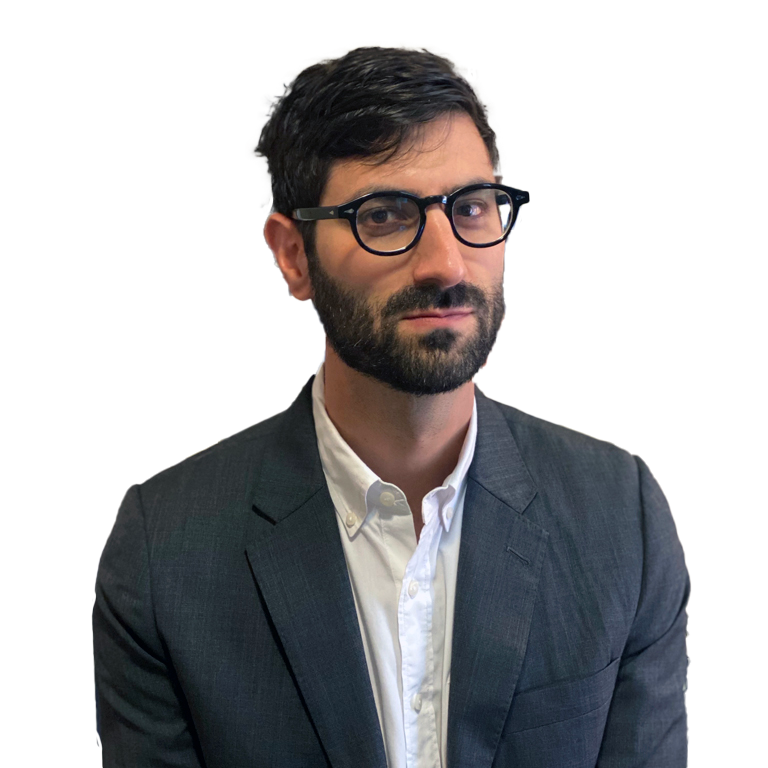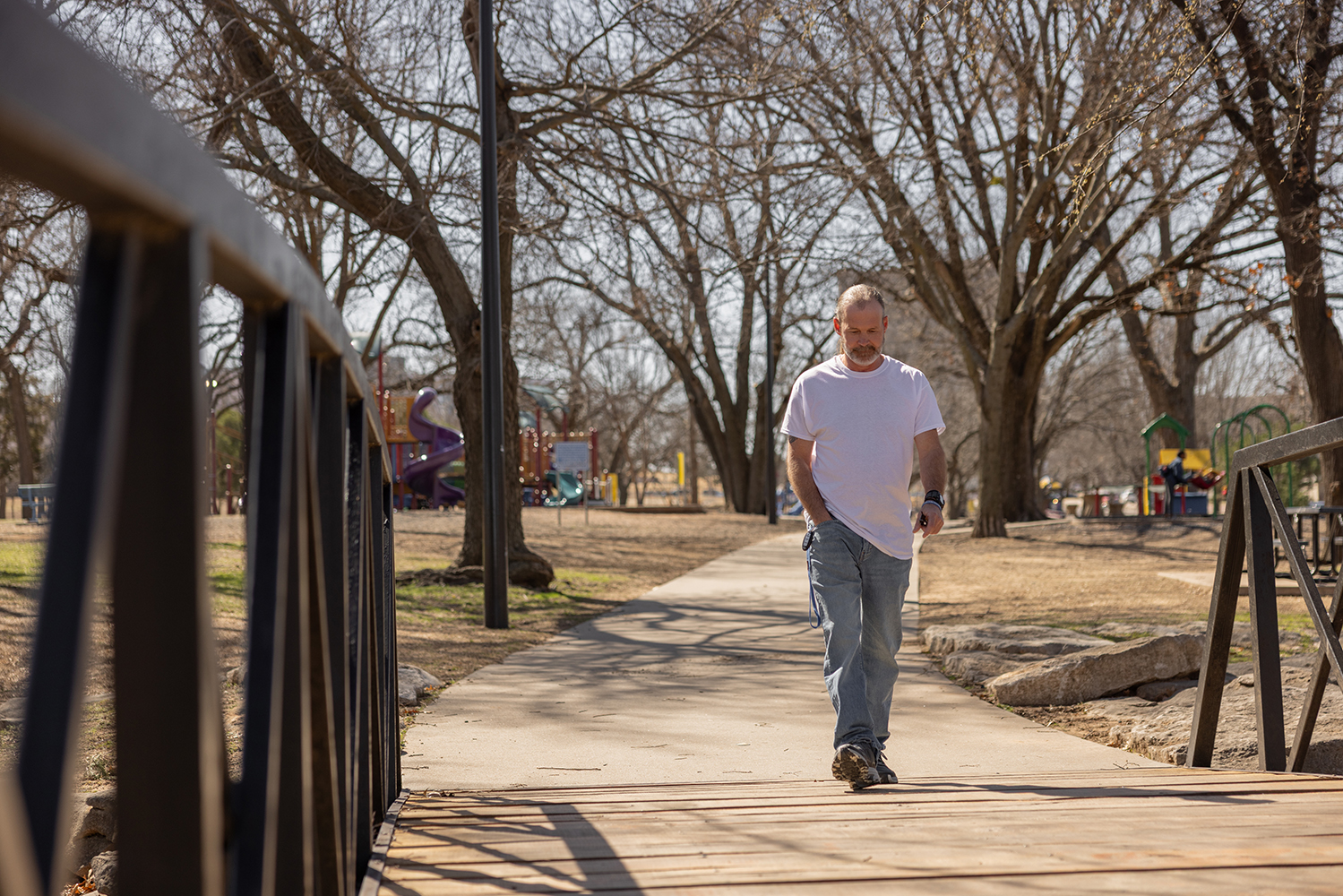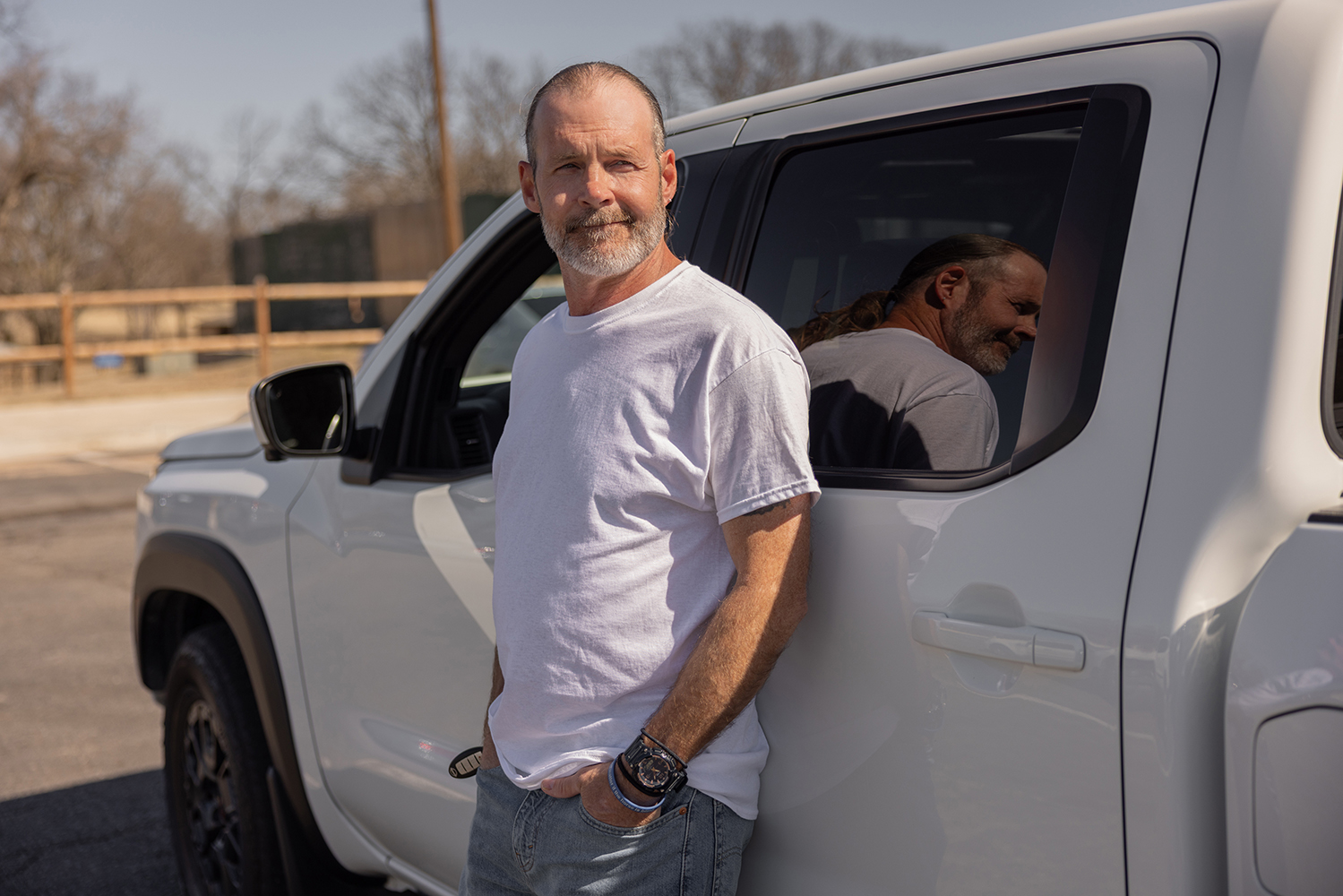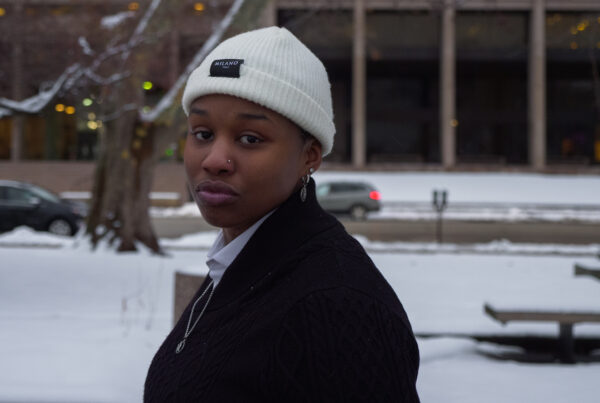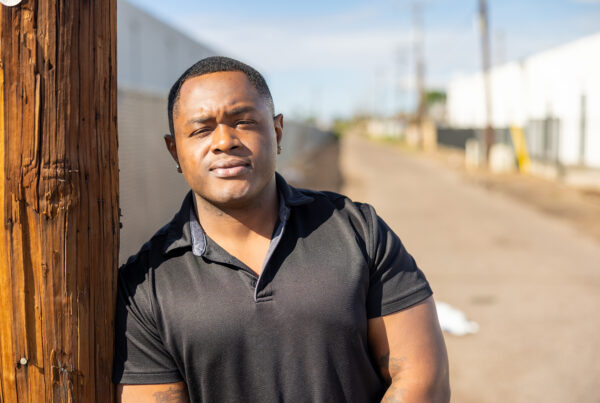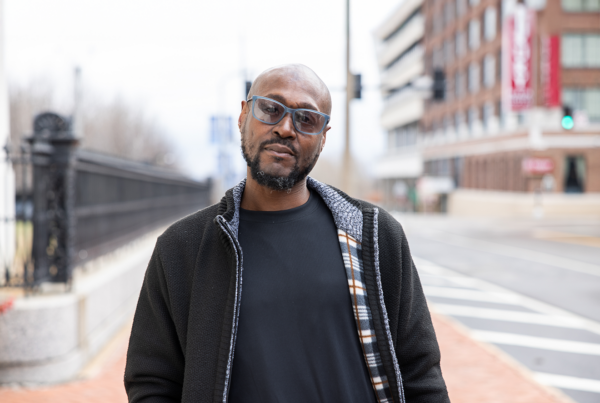Robby started drinking as a teenager, a habit that deepened when he joined the Navy. Alcohol became a way to cope with the fear and stress of combat duty during Desert Storm. Eventually, his drinking led to an “other than honorable” discharge.
Determined to move forward, Robby put himself through vocational school, became a machinist, and built a family with his girlfriend, helping to raise her daughter alongside their own child. But beneath the surface, his drinking remained a struggle.
“I was drinking every night, but in my mind, I was controlling it, because I was going to work every day.”
“I was drinking every night, but in my mind, I was controlling it, because I was going to work every day,” he said.
When his relationship ended – partly due to his substance use – Robby’s drinking escalated to methamphetamine use, and then fentanyl. “I was on my way to prison,” he recalled.
He ended up going to prison three times on both drug charges and for crimes he committed to support the drug habit – like stealing.
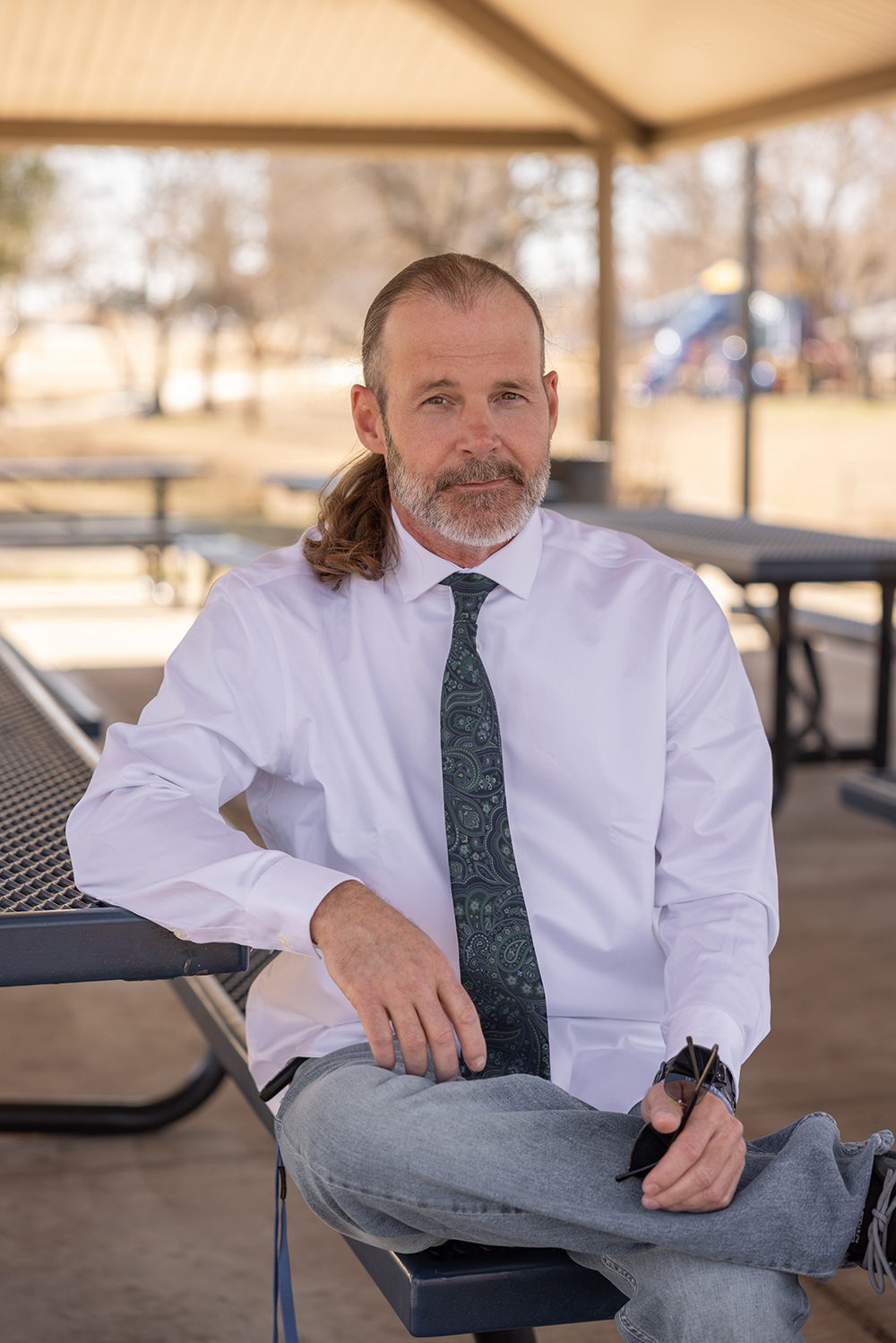
According to the Bureau of Justice Statistics, nearly 50% of people in state prisons have a diagnosed substance use disorder, a rate six times higher than in the general population. But punishment is not an effective treatment for addiction. Despite these high rates of addiction, only about 11% of people in U.S. prisons receive substance use treatment while incarcerated.
Addiction took a toll on Robby’s relationships. His daughters stopped hearing from him. He stole from his parents. Then, while in prison for a second time, he received a letter from his father: “I never want to see you again. Don’t ever come around me. You’re dead to me. You’re not my son anymore.”
In 2022, after serving his third prison sentence, Robby was released. Within a month, he was unhoused, struggling, and back in active addiction.
By 2023, feeling hopeless about his life, he stole a car in an attempt to leave town. Arrested once again, he detoxed in jail, sick and miserable, convinced he was heading back to prison.
Then, something unexpected happened: a guard told him that The Bail Project had paid his bail.
“No one has ever bonded me out of jail before. No one’s ever been there for me.”
“No one has ever bonded me out of jail before,” Robby said. “No one’s ever been there for me. No one ever visited me in prison. My family had washed their hands of me years ago. My daughters didn’t talk to me anymore. I was alone.”
But now, strangers were stepping in to help. A staff member from The Bail Project met with him, explained the next steps, and handed him a card with a phone number to call if he needed anything. Robby slipped it into his pocket and walked out of jail with something he hadn’t felt in a long time: a sense of possibility.
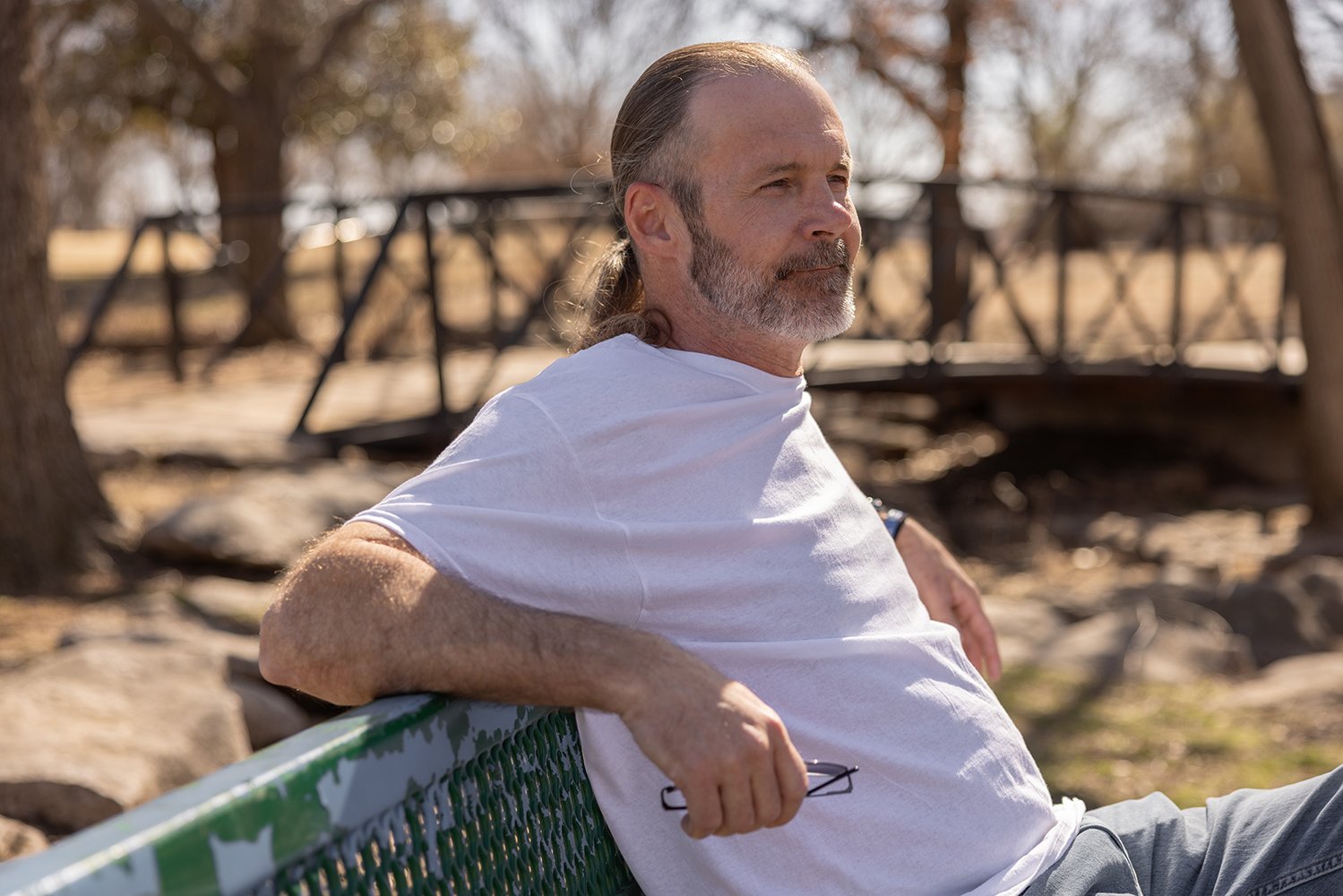
“I was so excited, I was like, this is my chance to change my life. I know what’s wrong – it’s the drugs and alcohol. I’ve got to get sober. I’ve got to change my life.”
But addiction is relentless. Within minutes of leaving jail, Robbie ran into his dealer – and used again. By dawn, he was in despair.
“At that moment, I had failed. I had failed as a father, as a son, as a friend. I had no one to call. My mom wouldn’t have answered the phone for me. I had no money. All I had was a shirt and the pants that I was wearing when I got released from jail. I was disgusted with myself.”
Formerly incarcerated people are 40 times more likely to die of an opioid overdose in the first two weeks after release compared to the general population. Robby took more than twice his usual dose of fentanyl and lay down on railroad tracks. “I just wanted to die.”
But instead of a train, a cold front came through, and the freezing air jolted him awake. “I thought, I’m going to finish this later, because I’m not freezing to death fast enough.”
An unhoused man shared his blanket with Robby as he shouted into the darkness, “I can’t do this anymore!” He had started thinking about how to get a gun, believing it would be a quicker way to end his life.
Then he reached into his pocket and found the card from The Bail Project. The name on it caught his eye: Mercy.
“I saw the name ‘Mercy’ and thought, That’s exactly what I need from the universe right now – some kind of mercy.”
“I saw the name ‘Mercy’ and thought, That’s exactly what I need from the universe right now – some kind of mercy.”
Robby called the number and when Mercy answered, he told her: “I’ve been trying to kill myself all morning, and I’m not going to make it till noon.”
Mercy didn’t hesitate. “I’m sending an Uber. Can you hold on for 30 minutes?”
Robby assumed the car would take him back to jail. But when he got in, the driver said his ride was taking him somewhere else – a crisis treatment center. Mercy had secured him a bed.
“I was able to go get my bed that Mercy got for me, and the rest is history,” he said. “I’ve been sober since that moment.”
The Bail Project does more than provide bail. It connects clients with the support they need – referrals to recovery centers, mental health services, and other resources that break the cycles of incarceration. Every year, the U.S. spends over $80 billion on incarceration, while community-based addiction treatment costs significantly less – around $4,700 per person annually. When people receive supportive pretrial services – like court reminders and transportation – over 90% return to court, even without cash bail.
“Ever since, I’ve lived every day in gratitude,” Robby said. “I can’t tell you how good life is today. I have a truck, a job, money in the bank. My credit score is 712. I had no credit two years ago. Now, I have a perfect payment history.”
After missing birthdays, holidays, and graduations for years, Robby was able to send his daughter money for her birthday. His relationship with his parents is healing. When he offered to repay what he had stolen from them, they told him, “Don’t worry about that. Whatever you’re doing, just keep doing that.”
He’s even paying off old court fines – some dating back 20 years. His first job in recovery paid $15 an hour laying marble and tile. Now, he’s back to work as a machinist, with a 20% raise. And for the first time in his life, he left a job for a better opportunity – rather than losing one due to addiction.
His recovery also changed the outcome of his case. Robby had expected to return to prison for the stolen car, but the court saw his progress and sentenced him to probation instead.
After the first year of supervised probation, his probation officer handed him a note: “Thanks for making my job easy.”
Robby smiled. “I’m going to frame that.”
One year into sobriety, Robby finally met Mercy in person. She had come to celebrate with him.
“She doesn’t realize how big of a part of my story she is,” he said. “She’s just a wonderful human being. Almost like a god. Or at least a tool of the God that I now believe in.”
Because of The Bail Project, when Robby reached his breaking point, he had a number to call. The one phone call saved his life.
Thank you for your valuable attention. The urgency and complication of the cash bail crisis requires meaningful participation to create real change – change that is only achieved through the support of readers like you. Please consider sharing this piece with your networks and donating what you can today to sustain our vital work.
